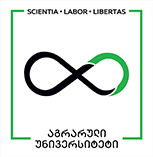Laboratory of Engineering Polymers
Current research in the laboratory is focused on the synthesis and investigation of new ionomers, primarily used in proton-conducting membrane fuel cells and electrolyzers. The team's goal is to synthesize new polymers and determine the relationship between their structure and properties. The main objects of research are aromatic polymers, which are synthesized using various types of reactions starting from monomers. From the obtained materials, new membranes are produced and subsequently studied.
Sulfurized poly(phenylene sulfones) are one of the primary research focuses due to their high proton conductivity, exceptional thermo-oxidative stability, and resistance to desulfurization. The group possesses unique expertise in this type of ionomer research.
Due to the complexity of their research, the group maintains close collaborations with several institutions: the Max Planck Institute for Solid State Research (Stuttgart, Germany), the Hahn-Schickard Research Institute (Freiburg, Germany), and the Baden-Württemberg Solar Energy and Hydrogen Research Center (Ulm, Germany).
The laboratory is equipped with bench-top BMR, IR, and UV-visible spectrometers, as well as a device for fabricating membranes.
Contact
Giorgi Titvinidze
Synthesis and Characterization of Poly(p-phenylene sulfide) Based Anion-Exchange Membranes for Water Electrolyzer and Fuel Cell Applications (2023)
ახალი ტიპის ანიონგამტარი სამემბრანე მასალების სინთეზი და კვლევა.
Beyond-PFSA (2022 – 2024)
პროექტის მიზანს წარმოადგენს ახალი ტიპის ნახშირწყალბადოვანი იონომერების განვითარება, რომლებიც შემდგომში გამოყენებულ იქნება საწვავი ელემენტის კატალიზურ ფენაში. პროექტის ფარგლებში ასევე ხდება სინთეზირებული სულფირებული პოლისულფონების მემბრანების განვითარება. აღნიშნული პროექტის ფარგლებში იგეგმება ფტორისგან სრულად თავისუფალი მემბრანა-ელექტროდის ნაკრების განვითარება.
ახალი იონგამტარი მაღალი სულფირების ხარისხის მქონე პოლი(ფენილენ სულფონების) სინთეზი და კვლევა ელექტროქიმიური გამოყენებისთვის (2022 – 2024)
ახალი ტიპის სამემბრანე პროტონგამტარი იონომერების სინთეზი და კვლევა. სინთეზში გამოიყენება მიკრობლოკური მონომერები, რაც საშუალებას იძლევა მოხდეს სულფირების მიმდევრობის ცვლილება.
Fluorfreie MEA (2021 – 2025)
პროექტის მიზანს წარმოადგენს ნახშირწყალბადოვანი იონომერების სინთეზი, რომელთა საფუძველზე შემდგომში მოხდება მემბრანა-ელექტროდის ნაკრების განვითარება წყლის ელექტროლიზერებში გამოსაყენებლად. მემბრანების მომზადება ხდება როგორც სინთეზირებული სულფირებული პოლისულფონებისაგან, ასევე მათი ფუძე-მჟავა პოლიმერული ნარევებისგან. მემბრანების წყლის აღების შესამცირებლად გამოიყენება გაკერვის სხვადასხვა მეთოდი. მემბრანების მექანიკური თვისებების გაუმჯობესებისათვის გამოიყენება სხვადასხვა ტიპის ფოროვანი პოლიეთილენი. აღნიშნულ პროექტში პირველად იქნა გამოყენებული მიკრობლოკური მონომერები.
PSUMEA-3: Fluor-freie Membran-Elektroden-Einheiten (MEA) für PEM-Brennstoffzellen und Wasser-Elektrolyseure; Teilvorhaben: Entwicklung protonenleitender Membranen und Membran-Elektroden-Einheiten auf Basis sulfonierter Poly-Phenylen-Sulfone (2017 – 2021)
პროექტის მიზანს წარმოადგენდა ფტორისგან თავისუფალი მემბრანა-ელექტროდის ნაკრების განვითარება, რომლის გამოყენების არეალი იქნებოდა როგორც პოლიმერ ელექტროლიტური საწვავი ელემენტები, ასევე წყლის ელექტროლიზერები. მემბრანების დამზადება ხდება მაღალსულფირებული პოლისულფონების საფუძველზე; მექანიკურად მდგრადი მემბრანების მისაღებად გამოყენებულია ფუძე-მჟავა პოლიმერული ნარევები, სადაც ფუძე პოლიმერებად აღებულია პოლიბენზიმიდაზოლები.
Novel Polymer Electrolyte Membranes for Fuel Cell Application (Ref. 93331) (2017 – 2021)
გრანტის მიზანს წარმოადგენდა, სულფირებული არომატული ტიპის პოლიმერ ელექტროლიტების სინთეზი, კვლევა და მათგან საწვავი ელემენტებისათვის განკუთვნილი მემბრანების დამზადება. გრანტის ფარგლებში პირველად იქნა სინთეზირებული პოლისულფონები გვერდით ჯაჭვში სულფონმჟავა ჯგუფებით. მემბრანების დამზადება ხდებოდა, როგორც ინდივიდუალური პოლიმერებისაგან, ასევე მჟავა-ფუძე ურთიერთქმედებაზე დაფუძნებული პოლიმერული ნარევებისგან.
Qelibari, R., Ortiz, E. C., van Treel, N., Lombeck, F., Schare, C., Münchinger, A., Dumbadze, N., Titvinidze, G., Klose, C., Vierrath, S. (2024). 74 µm PEEK‐Reinforced Sulfonated Poly (phenylene sulfone) ‐ Membrane for Stable Water Electrolysis with Lower Gas Crossover and Lower Resistance than Nafion N115. Advanced Energy Materials, 14, 2303271.
van Treel, N., Qelibari, R., Titvinidze, G., Klose, C., Münchinger, A., Ortiz, E. C., Vierrath, S. (2023). Casting Electrodes on PEEK Reinforced Sulfonated Polyphenylsulfone Membrane. Electrochemical Society Meeting Abstracts 244, 1877-1877.
Klose, C., Schare, C., Qelibari, R., Piesold, C., Khutsishvili, L., Viviani, M., Münchinger, A., Titvinidze, G., Kreuer, K.-D., Vierrath, S. (2023). All-Hydrocarbon PEM Water Electrolyzers: An Engineering Perspective. 244th ECS Meeting.
Yazili, D., Marini, E., Saatkamp, T., Münchinger, A., de Wild, T., Gubler, L., Titvinidze, G., Schuster, M., Schare, C., Jörissen, L., Kreuer, K., D. (2023). Sulfonated Poly (Phenylene sulfone) blend membranes finding their way into proton exchange membrane fuel cells. Journal of Power Sources (Elsevier). 563, 232791
Katcharava, Z., Saatkamp, T., Muenchinger, A., Dumbadze, N., Kreuer, K. D., Schuster, M., Titvinidze, G. (2022). Optimized step-growth polymerization of water-insoluble, highly sulfonated poly (phenylene sulfone), Polymers for Advanced Technologies (Wiley), 33, 2336-2343
Ochkhikidze, N., Titvinidze, G., Gverdtsiteli, M., Otinashvili, G., Tugushi, D., Katsarava, R. (2020). Synthesis of AABB-polydepsipeptides, poly (ester amide)s and functional polymers on the basis of O,O-diacyl-bis-glycolic acids. J. Macromol.Sci., Part A, Pure & Appl. Chem. 57(12), 854–864
Tsiklauri, G., Kantaria, Tem., Kantaria, Ten., Katsarava, R., Titvinidze, G. (2020). Synthesis of novel main-chain azo-benzene poly(ester amide)s via interfacial polycondensation. Int. J. Appl. Chem., 7(2), 63-69.
Klose, C., Saatkamp, T., Münchinger, A., Bohn, L., Titvinidze, G., Breitwieser, M., Kreuer, K. D., Vierrath, S. (2020). All-hydrocarbon MEA for PEM water electrolysis combining low hydrogen crossover and high efficiency. Advanced Energy Materials. 10 (14), 2070061
Zavradashvili, N., Sarisozen, C., Titvinidze, G., Kantaria, Teng., Tugushi, D., Puiggali, J., Torchilin, V., Katsarava. R. (2019). Library of Cationic Polymers Composed of Polyamines and Arginine as Gene Transfection Agents, ACS Omega, 2090-2101
Kantaria, Tem., Kantaria, Ten., Kobauri, S., Ksovreli, M., Kachlishvili, T., Kulikova, N., Tugushi, D., Katsarava, R. (2019). A new generation of biocompatible nanoparticles made of resorbable poly (ester amide)s, Ann. Agrarian Sci., 17 49-58.
Kobaladze, A., Lomidze, A., Maludze, S., Sakevarishvili, A., Dideblide, K., Metreveli, Z., Titvinidze, G., Tarabara, V. (2019). Filterability of surface water from Tbilisi Sea. Preliminary assessment of ultrafiltration as a process alternative. Separation science and Technology
Kantaria, Ten., Kantaria, Tem., Titvinidze, G., Otinashvili, G., Kupatadze, N., Zavradashvili, N., Tugushi, D., Katsarava, R. (2018). New 1,2,3-Triazole Containing Polyesters via Click Step-Growth Polymerization and Nanoparticles Made of Them. Int. J. Polym. Sci.,V, Article ID 6798258.
Martin-Zarco, M., Titvinidze, G., Garcia-Martinez, J.C., Rodriguez-Lopez, J. (2016). Sulfonated dendrimer- and hyperbranched polyglycerol-PBIOO® blend membranes for fuel cells. Journal of Polymer Science A: Polymer Chemistry. 54, 69-80
Tatrishvili, T., Titvinidze, G., Pirckheliani, N., Aneli, J., Zaikov, G., Mukbaniani, O. (2015). Hydrosilylation reactions of polymethylhydrosiloxane with acrylates and methacrylates and solid polymer electrolyte membranes on their basis. Oxidation Communications. 38(2), 776-788
Titvinidze, G., Wohlfarth, A., Kreuer, K. D., Schuster, M., Meyer, W.H. (2014). Reinforcement of Highly Proton Conducting Multi-Block Copolymers by Online Crosslinking. Fuel Cells, 14, 325-331
Titvinidze, G., Dundua, A., Mukbaniani, O. (2014). Kinetic Study of Dehydrocondensation Reactions of Polymethylhydrosiloxanes with Alcohols. Oxidation Communications. 37 (1), 372-378
Titvinidze, G., Dundua, A., Doroshenko, M., Mukbaniani, O. (2014). Synthesis and Investigation of New Functional Polysiloxanes. Oxidation Communications. 37 (1), 362-371




